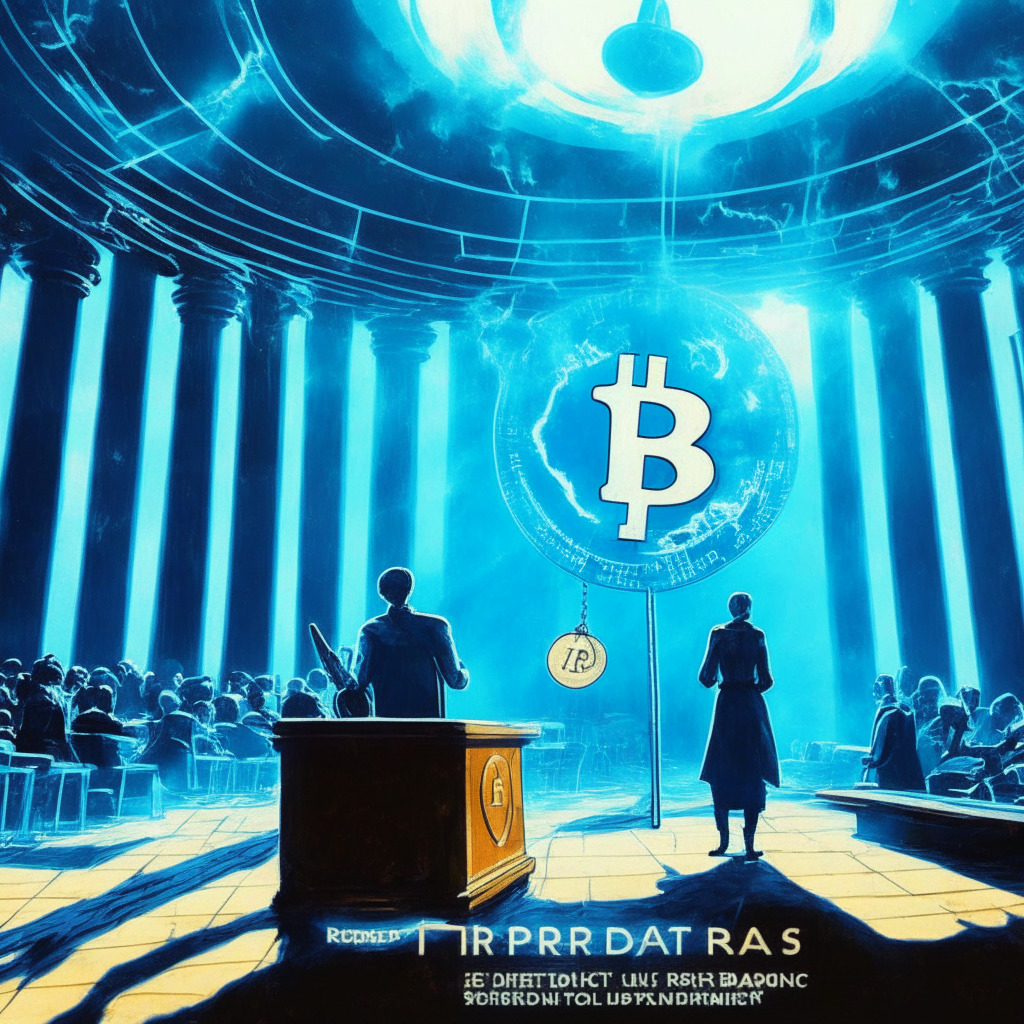Blockchain needs its SSL equivalent to become genuinely useful. Zero-knowledge cryptography may unlock blockchain’s full potential in a secure and compliant manner while preserving user privacy. However, achieving the right balance between privacy and transparency is crucial for mainstream adoption.
Month: May 2023
Balancing AI Advancements with Environmental Responsibility: Pros, Cons, and Conflicts
AI-driven solutions promise increased efficiency and convenience, but its environmental impact raises concerns about sustainability and carbon footprint. Optimization algorithms, energy-efficient processors, AI-driven energy management systems, and proper e-waste management practices are crucial in making AI a greener and more sustainable technology, requiring collaboration among governments, researchers, industry leaders, and environmental organizations.
AI Trading: ChatGPT Gains Followers, But Is Caution Necessary? The Great Debate Unfolds
The GPT Portfolio experiment has attracted 25,000 investors, betting a combined $14.7 million on AI’s stock picks. However, concerns about misinformation and job losses due to AI automation urge caution in relying solely on AI-driven tools for trading decisions.
Ethereum Breakout Signals Potential Trend Reversal: Analyzing Market Conditions & Resistance Levels
Ethereum recently experienced a price breakout on May 28th, signaling a potential trend reversal. With a high volume of buyers, Ethereum’s market value could climb 12.2% to hit $2132. However, investors must vigilantly observe market conditions as resistance levels remain crucial to maximize success in the volatile market.
Nvidia’s AI Supercomputer and Ethical Boundaries: Balancing Innovation with Responsibility
Nvidia introduces the DGX GH200 AI supercomputer to advance AI applications, targeting video game enhancements and advertising cost reductions. As AI accessibility grows, developers must collaborate with lawmakers to create a regulatory framework that fosters responsible and ethical AI innovation.
Binance’s Global Expansion Amid Regulatory Scrutiny: Balancing Innovation and Compliance
Binance appoints Richard Teng to oversee all its regional markets outside the US amid ongoing regulatory scrutiny. The exchange faces challenges including a lawsuit from the US CFTC and increased global regulations, showcasing the tension between innovation and regulation in the crypto industry.
Ledger Recover Service: Balancing Crypto Security and User Onboarding Conundrum
Hardware wallet firm Ledger faces criticism over its “Recover” service, aimed at simplifying self-custody by allowing backup and restoration of private seed phrases. Amid security concerns, Ledger postponed the launch to focus on open-sourcing its protocol. While critics argue it goes against core ideals, some believe it may help onboard new users.
Instagram’s Crypto Verification Puzzle: A Careless Approach to User Safety?
Despite strict policies, Instagram struggles to protect users from potential crypto frauds, as seen in the case of Carl Dawkins, CEO of Love Hate Inu. Dawkins sought blue tick verification to prevent impersonation, but Instagram’s public-figure threshold and reluctance to verify raises concerns about user safety, especially as crypto gains popularity and meme coin frenzy prevails.
Crypto
Crypto enthusiasts visiting Bali are warned against using digital assets for payment as it’s illegal in Indonesia. Non-compliance risks deportation, sanctions, or criminal penalties. Despite recognizing crypto as a commodity in 2018, its use as a form of payment remains strictly prohibited.
Dogecoin: Calm Before the Storm? Analyzing Bollinger Bandwidth Predictions
Dogecoin’s Bollinger bandwidth, a technical analysis indicator, is at its lowest level since February 2019, suggesting a significant price move may be imminent. However, the direction of the move remains uncertain, and the world’s leading meme cryptocurrency could experience either a bullish or bearish trend.
Must-Read Books for Blockchain Entrepreneurs: Exploring Success, Disruption, and Innovation
These must-read books for tech entrepreneurs cover diverse topics such as experimentation, game-changing innovations, habit-forming products, navigating startup complexities, customer development, and the rise of the blockchain economy. They offer valuable lessons and inspiration in technology, innovation, and disruption.
Ethereum vs Visa: Battle of Transaction Giants and the Future of Finance
Ethereum’s $3.01 trillion in transaction processing approaches Visa’s $3.08 trillion, showcasing mainstream adoption of the versatile blockchain technology. With solutions like DeFi, staking, and lending, Ethereum challenges traditional payment giants and revolutionizes the global finance market.
Hong Kong SFC’s Crypto Regulations Boost Chinese Cryptos: Analyzing Conflux, VeChain, and Filecoin
The Hong Kong Securities and Futures Commission’s recent regulation of virtual asset trading platforms paves the way for retail investors in cryptocurrency trading, spurring crypto adoption and increased demand for Chinese-related projects. However, investors must remember that crypto markets can be unpredictable, requiring thorough research before investing.
Mysterious Ethereum Whale Moves 8,000 ETH: Security, Liquidation, or Confidence in Future?
A dormant Ethereum wallet from the 2015 ICO suddenly transferred its 8,000 ETH ($15.2 million) to a new address this past Saturday. The crypto community speculates on reasons behind the transfer, such as enhanced security or a potential large-scale liquidation, reflecting the market’s captivating dynamics and unpredictability.
Debt Ceiling Agreement Blocks Crypto Mining Tax: A Win for the Industry or Environmental Setback?
The recent U.S. debt ceiling agreement has notably blocked the proposed Digital Asset Mining Energy (DAME) excise tax, preventing a 30% tax imposition on cryptocurrency mining firms. This outcome, seen as a victory for the crypto industry, has sparked debates around the environmental impact of crypto mining operations and the importance of addressing energy consumption concerns for a sustainable future.
CosmWasm v2.1.0 Parity Upgrade: Terra Classic’s Game Changer or Overhyped Event?
The Terra Classic LUNC developer group Joint L1 Task Force has completed version 2.0.1 and is now focusing on the CosmWasm v2.1.0 parity upgrade, potentially bringing Terra Classic on par with blockchains like Terra 2.0 and Cosmos. The upgrade, integrating features such as Edward Kim’s AI app chain “Block Entropy,” is now scheduled for June 14 to allow for additional testing.
Ripple vs SEC: Will XRP Relist on Exchanges After Judgment? A Dive into Secondary Sales
The U.S. District Court’s pending summary judgment in the SEC vs Ripple lawsuit raises concerns around XRP’s relisting on crypto exchanges and secondary market sales. Ripple’s legal team may discuss the recent LBRY settlement, while the court’s stance on XRP’s nature as a security remains uncertain. Investors should conduct thorough research before investing in cryptocurrencies amidst ongoing uncertainty.
Crackdown on Crypto Payments in Bali: Debating Tourist Frustration and Economic Impact
Tourists visiting Bali face strict penalties for using crypto payments, as the Indonesian government cracks down on digital currency use in the country. The community’s response has been divided, with some defending the ban and others reconsidering their vacation plans to the popular tourist destination. This dispute highlights the ongoing divide between supporters of cryptocurrency and traditional financial systems.
Bali Warns Tourists: Crypto Payments May Lead to Deportation or Sanctions
Bali Governor Wayan Koster warns foreign tourists against using crypto for payments, stating violations can lead to criminal penalties, deportation, or sanctions. Indonesian law requires transactions to utilize local currency, the rupiah, to protect it from alternative currency challenges.
Crypto Market Rises with Debt Ceiling Deal: Will Fed Policy Meeting Impact the Trend?
The cryptocurrency market, including Bitcoin and Ethereum, experienced a boost alongside the stock market as U.S. lawmakers reach a tentative deal for the federal government’s debt ceiling. The outcome of the upcoming Federal Reserve policy rate meeting may impact the cryptocurrency market’s upward trajectory.
Kazakhstan’s Crypto Growth vs Bybit’s Regulatory Compliance: A Complex Balancing Act
Cryptocurrency exchange Bybit receives “in-principle” approval from Kazakhstan’s Astana Financial Services Authority to operate as a digital asset trading facility and custody services provider. The region holds “promising potential” for growth in the crypto industry but regulatory compliance remains a crucial success factor.
Crypto Giants Gemini & Genesis Fight SEC Lawsuit: Unregistered Securities or Not?
Genesis Global Capital and Gemini are urging a U.S. court to drop an SEC lawsuit alleging they sold unregistered securities through Gemini’s Earn product. Gemini argues that the SEC’s portrayal of the Master Digital Asset Loan Agreement (MDALA) as an unregistered security is baseless. The ongoing legal dispute centers around disclosure requirements and the nature of MDALA as a security or not.
Short-Term Holders Profitable: Bull Run Indicator or Potential Market Shift?
Bitcoin’s future looks promising as short-term holders (STH) sell coins for profit, indicated by a value above one on the 7-day moving average of STH spent output profit ratio (SOPR) by Glassnode. This bullish trend reflects the degree of realized profit for all coins moved on-chain, suggesting higher prices may lie ahead.
Bitcoin Leads Market Surge: Altcoins and Meme Tokens Set to Rally
Bitcoin price rose 2.5% to $27,896, with potential for more growth as it stays above its 21 weekly EMA. This upward trend may lead to rallies in lower cap altcoins and meme tokens. Increasing confidence in the global economy and a growing appetite for risk-on assets point to positive growth in the cryptocurrency market.
Pony.ai’s Robotaxi Expansion: China’s Race to Autonomous Vehicle Dominance & Its Implications
Chinese autonomous vehicle startup Pony.ai has expanded its driverless robotaxi services with a newly introduced service in Shenzhen. Backed by Toyota Motor and NIO Capital, Pony.ai faces competition from Baidu and Didi Chuxing in the fast-paced Chinese market. The government aims for vehicles with partial self-driving technology to account for 50% of all new-auto sales by 2025.
Tranglo and Al Ansari Exchange Partnership: Implications for Ripple’s ODL Expansion
Tranglo partners with Al Ansari Exchange, the largest personal remittance and foreign exchange firm in the UAE. This collaboration marks an essential step in Tranglo’s Middle East expansion and could impact Ripple’s On-Demand Liquidity (ODL) service.
Terra Co-Founder Do Kwon’s Legal Battles: A Glimpse into Crypto’s Regulatory Future
Terra co-founder Do Kwon faces a passport forgery case in Montenegro and has hired law firm Dentons for legal defense. The US SEC has accused Terraform Labs of fraud and sale of unregistered securities, leading to eight charges against Kwon. This highlights the complex regulatory landscape surrounding cryptocurrency and blockchain technology.
US Debt Ceiling Agreement Fuels Bitcoin’s Rally: Will the Bullish Trend Continue or Correct?
Bitcoin’s value sees an uptick amid US debt ceiling discussions, as a preliminary agreement is reached between President Joe Biden and Republican leader Kevin McCarthy. The debt ceiling agreement could impact the Federal Reserve’s money-printing activities, potentially benefiting Bitcoin due to its inverse trading relationship with the USD. However, a significant barrier at the $28,300 level may affect Bitcoin’s upward trajectory.
Fantom’s Gas Monetization Program: Boosting Network Demand or Hindering Innovation?
Fantom blockchain introduced the “dApp Gas Monetization Program” to address its burn rate issue, reducing it from 20% to 5%, and redirect 15% of gas fees towards applications built on the platform. The program aims to retain developers and support Fantom’s network infrastructure while rewarding in-demand applications, despite potential drawbacks like increased gas fee dependency.
XRP: Bold $2 Prediction, FOMO, and Cautionary Analysis Amid SEC Lawsuit
XRP lawyer John E. Deaton predicts that once XRP’s value surpasses $1, hesitant investors may flock to the digital asset, potentially propelling it towards $2. However, considering ongoing regulatory challenges and uncertainties, investors should conduct thorough research before investing in cryptocurrencies.
Shiba Inu Burn Rate Soars 1450%: Will It Impact Price or Give Way to Rising Meme Coins?
The Shiba Inu burn rate increased over 1450% in the past 24 hours as 2.9 billion SHIB tokens were burned, boosting SHIB’s user base. However, the price hasn’t shown notable changes, and it remains uncertain whether SHIB will experience significant growth amid the expanding meme coin market.
AI in Legal Profession: Balancing Innovation and Risk in a High-Stakes World
A New York attorney faced embarrassment after using ChatGPT for legal research, resulting in submitted documentation with errors and inconsistencies. This incident has fueled skepticism regarding AI integration in the workforce, emphasizing the need for human expertise, critical thinking, and thorough verification of AI-generated content.































